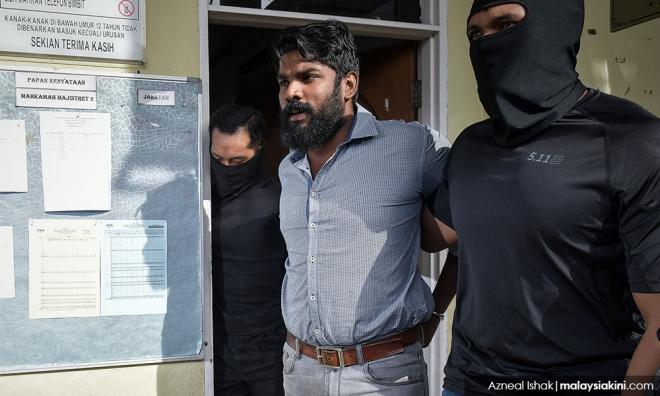
A few weeks ago, Justice Mohd Nazlan Mohd Ghazali sitting at the High Court of Malaya in Kuala Lumpur delivered a landmark decision regarding Section 13 of the Security Offences (Special Measures) Act 2012 (Sosma).
To recap, Sosma itself does not create offences. A person cannot be charged for an offence under Sosma. Sosma is a law that provides for the procedures, evidential rules and powers to the authorities in relation to what is known as ‘security offences’.
‘Security offences’, according to the Act, include offences which fall under Part VI (offences against the State) and Part VIA (terrorism) of the Penal Code.
Section 13 of Sosma provides that bail shall not be granted to a person who has been charged with a security offence. However, if a person is charged for an offence other than an offence under Chapter VIA of the Penal Code (which relates to terrorism offences), and the person is below the age of 18, a woman or a sick or infirmed person, he or she may be released on bail. However, he or she may be subjected to an electronic monitoring device on his or her person.
Thus, the jurisdiction of the Courts to grant bail for a security offence is curtailed by the law. The accused person is therefore ‘punished’, even though he or she has not been found guilty of any offence.

According to news reports, Gadek assemblyman G. Saminathan (above), through his lawyers, filed an application essentially to challenge the prohibition of bail under Section 13 Sosma.
The matter was heard before Justice Nazlan and in the said landmark decision, he held that Section 13 Sosma was unconstitutional.
In coming to this decision, Justice Nazlan made reference to the basic structure doctrine which was recognised by the Federal Court in the cases of Semenyih Jaya Sdn Bhd v Pentadbir Tanah Daerah Hulu Langat, and Indira Gandhi v Pengarah Jabatan Agama Islam Perak and other appeals.
These cases have established that the judicial power of the Federation lies with the Courts, and any attempt to remove or subvert the judicial power would violate the basic structure doctrine. Thus, Parliament cannot oust the jurisdiction of the Courts by way of an Act of Parliament.
Since Section 13 takes away the judicial application for bail, it was held to be unconstitutional.
The Attorney General, acting as the Public Prosecutor, had on 13 December 2019 informed the public of his decision not to appeal against the said decision. The High Court decision that Section 13 Sosma is unconstitutional remains valid and binding.
The decision would have a profound effect on the Sosma detainees awaiting trial. They would now have the chance of applying to Court for bail, and it would be up to the Courts to determine whether bail should be granted. The Courts would have to consider this question based on the established legal principles relating to the granting of bail.
However, it must be stressed that Justice Nazlan’s decision has not cured Sosma of its draconian elements. As it stands, there remain elements within the law that deny an accused person the right to a fair trial. The Government should heed the calls to abolish Sosma.
SYAHREDZAN JOHAN is a civil liberties lawyer and political secretary to Iskandar Puteri MP Lim Kit Siang. - Mkini



No comments:
Post a Comment
Note: Only a member of this blog may post a comment.